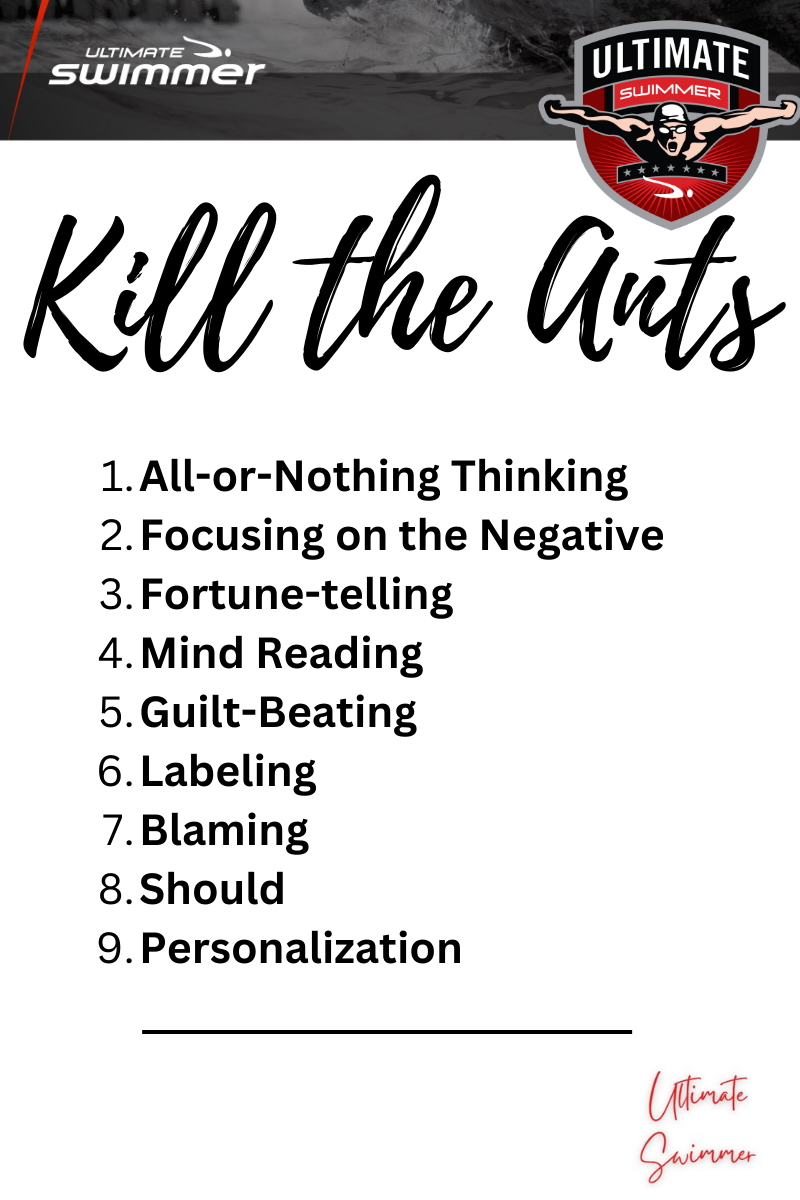The Secret to Mental Toughness. Kill the ANTs on Deck!
- Shantel Cornelius Davis

- Mar 30, 2023
- 4 min read
Updated: May 30, 2023
Call in the exterminator and build mental toughness! A while back, I was invited to speak to a group of athletes at a sports camp. It got me thinking, what kind of knowledge could I impart that might just be the key to their success?
I'm excited to share with you what I believe is one of the most important factors that distinguishes between good athletes and truly exceptional ones. Today, we're going to delve into the critical aspect of mental toughness that involves managing your Automatic Negative Thoughts, or ANTs. We must kill the ANTs on deck!
As an athlete, you may have experienced moments of doubt or negative self-talk that can hold you back from reaching your full potential. Our brains have evolved to keep us safe, but sometimes they can produce negative thoughts that are not only unnecessary but also harmful.
ANTs are notorious for creeping up on us and sabotaging our performance, and they can be a real hindrance for elite athletes. At our Olympian swim clinics, you'll often hear from athletes who have successfully conquered their ANTs or who have fallen victim to them, resulting in a less than ideal performance. I am reminded of an Olympic Trials story where one of our Olympians failed to qualify for their strongest event. Instead of leaving in defeat, they retreated to the warmup pool, killed the ANTs and returned to make the team in one of their weaker events.
This is the MUST learn. Dr. Amen, a neuroscientist and mental health expert, has identified nine species of ANTs that athletes may encounter. By recognizing these ANTs, we can take steps to control them and achieve our goals.
The first ANT is the "All or Nothing" mindset, which involves seeing things in black and white and often leads to extreme thinking. For example, thinking that you are either a complete success or a complete failure based on one race.
The second ANT is the "Focusing on the Negative" mindset, which involves dwelling on negative aspects and ignoring the positive ones. This may include only remembering the mistakes you made in a race rather than the progress you've made overall.
The third ANT is the "Fortune Telling" mindset, which involves predicting the future negatively without considering other possible outcomes. This can lead to anxiety and a lack of confidence in your abilities. I'm definitely going to mess up and let everyone down. There's no way I can beat them, they're just too good. My goggles will fall off like the last race.
The fourth ANT is the "Mind Reading" mindset, which involves assuming negative thoughts or motives in others without evidence. This can lead to unnecessary conflict and stress in relationships with coaches, teammates, and parents. Coach was quiet after my race he must think I'm a loser. You assume your teammates don't like you because they don't invite you to hang out outside of practice.
The fifth ANT is the "Guilt-Beating" mindset, which involves using guilt as a motivator and often leads to self-blame. This can be harmful to your mental health and can impact your performance negatively. You feel guilty for taking a rest day or missing a practice, even if your body really needs it. You constantly compare yourself to others and feel guilty for not measuring up to their achievements.
The sixth ANT is the "Labeling" mindset, which involves using negative labels to describe oneself or others. This can lead to limiting beliefs and a lack of confidence in your abilities.
A coach gives you feedback on your technique, and you think to yourself, "I'm just not a very coordinated person, I'll never be able to fix this. A teammate makes a mistake during the meet, and you think to yourself, "They're so careless, they're not a good swimmer."
The seventh ANT is the "Blaming" mindset, which involves placing blame on others rather than taking responsibility for one's own actions. This can lead to a lack of personal growth and can be harmful to your relationships. You don't achieve a personal best time, and you blame your coach for not providing you with the right training program. Your parents can't make it to your competition, and you blame them for not being supportive enough.
The eighth ANT is the "Should" mindset, which involves rigidly holding oneself or others to a set of expectations without flexibility. This can lead to burnout and a lack of enjoyment in the sport. You have a bad race and think to yourself, "I should have performed better, I've been training so hard. Your coach gives you feedback on your technique, and you think to yourself, "I should have known better, I've been swimming for years.
The final ANT is the "Personalization" mindset, which involves taking things personally without considering other factors that may be involved. This can lead to unnecessary stress and anxiety about situations that may not be within your control. Your team doesn't make it to the finals, and you feel like you let everyone down. Your coach gives you feedback on your technique, and you take it as a personal attack on your abilities as a swimmer.
Remember, mental toughness is just as important as physical toughness in the sport of swimming. By controlling your ANTs, you can improve your performance and experience.




Comments